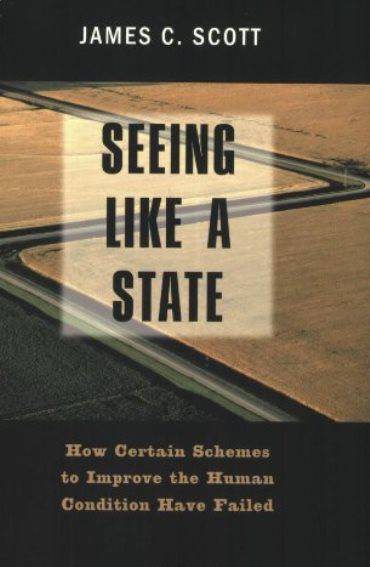Seeing Like a State: How Certain Schemes to Improve the Human Condition Have Failed
In this wide-ranging and original book, James C. Scott analyzes failed cases of large-scale authoritarian plans in a variety of fields. He argues that centrally managed social plans derail when they impose schematic visions that do violence to complex interdependencies that are not — and cannot be — fully understood. Further the success of designs for social organization depends on the recognition that local, practical knowledge is as important as formal, epistemic knowledge. The author builds a persuasive case against “development theory” and imperialistic state planning that disregards the values, desires, and objections of its subjects. And in discussing these planning disasters, he identifies four conditions common to them all: the state’s attempt to impose administrative order on nature and society; a high-modernist ideology that believes scientific intervention can improve every aspect of human life; a willingness to use authoritarian state power to effect large-scale innovations; and a prostrate civil society that cannot effectively resist such plans.
Details
New Haven, Connecticut
1998
446 pages
9780300078152
Available on request
Yes
Yes
300.1 Sco
1
- Парадокс глобализации: демократия и будущее мировой экономики2014
- Почему Европа? Возвышение Запада в мировой истории, 1500–18502014
- Бредовая работа. Трактат о распространении бессмысленного труда2020
- Орнамент массы. Веймарские эссе2019
- Краткая история власти и собственности в мире и России: о чём предупреждал Егор Гайдар2016
- Демократия, или Демон и гегемон2016
- Реакционный дух. Консерватизм от Эдмунда Бёрка до Сары Пэйлин2013
- ГУЛАГ2016
- Капитализм и историки2012
- Essays on the Sociology of Culture: Collected Works Volume Seven2001
- Толерантность как принцип политического действия: история, теория, практика2007
- Цены и ценообразование в СССР в восстановительный период 1921–1928 гг.2016












